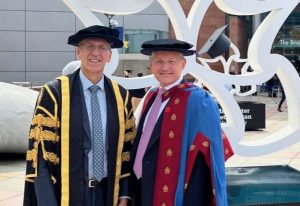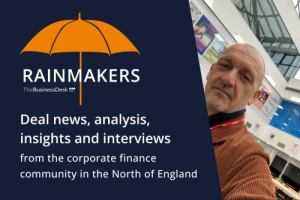Reasons to be cheerful about tech growth

GROWTH in tech sector in the North West is a favourite theme for both political and business leaders, but is it aspirational or can it become a reality?
Greater Manchester and the Liverpool City Region may be some way off rivalling California’s Silicone Valley, but the signs are there that the will to drive growth among technology based enterprises is alive and kicking.
Of course, there is always the grating of ambition against the hard financial facts, underlined by comments from Grant Thornton’s Manchester-based partner Philip Grindley.
“Amongst tech entrepreneurs there’s some frustration about the perceived shortage of risk capital in the UK,” he said. “Some feel they have to go as far as the US to get backing.
“Pre-revenue businesses which have valuable IP may feel support is just not there. In many ways that’s one of the biggest challenges for anyone in the tech sector.
“There’s no shortage of ideas and innovation – it’s always about securing the lifeblood of funding.
“We need to see more VCs (venture capital funds) setting up in Manchester and for the funding eco-system in the North to grow.”
Grindley, however, said entrepreneurs and their backers should not get “too hung up” about the fact that businesses typically need to go to London second or third round of funding.
“It’s an international financial capital and obviously has a scale that’s not replicated elsewhere,” he added. “If you have the right advice and support network you can access the funding.
“Tech hubs have a really important role to play in growing a vibrant digital economy.”
Grindley pointed to the success of The Sharp Project in East Manchester to illustrate his point.
Creative and digital hub, The Sharp Project, has contributed some £32m to the local economy. In 2011, when it was completed, digital industries accounting for 45,774 jobs in Greater Manchester and generated £2bn of economic output a year.
The sector now has about 57,000 employees in Manchester alone, according to report commissioned by MIDAS in 2015, and the city is recognised as the UK’s second for the digital sector after London.
A report commissioned by Manchester City Council to examine the economic impact of the project, also revealed the number of jobs increased in the last two years by 57% from 205 to 480.
Meanwhile, Manchester City Council has approved a £14m investment package to enable the expansion plans for Sharp’s sister project – The Space Project in West Gorton.
The hub for TV and film production is expected to double in size by 2017.
But it’s not all about Manchester. An American technology company has chosen Liverpool for its UK headquarters after links forged during a trade mission to the US led by city Mayor Joe Anderson last year.
Tanveer Patel, chief executive of Alabama-based medical technology company ConcertCare came to Liverpool to progress talks with the city’s inward investment team over plans to open a UK office.
The two cities signed an economic twinning agreement which aims to link cities with economic, cultural and educational similarities.
Another transatlantic breakthrough came in February when the boss of the US company which had just bought e-commerce business Kitbag pledged to give it the investment and focus it needs to grow into a company generating “many hundreds of millions of dollars” in sales.
Doug Mack, chief executive of $1bn Silicon Valley enterprise Fanatics Inc was speaking after spending five days in the North West at Kitbag’s Middleton, Greater Manchester offices, where he held a series of meetings with executives and outlined his vision to all 500 staff.
Reasons to be cheerful?









